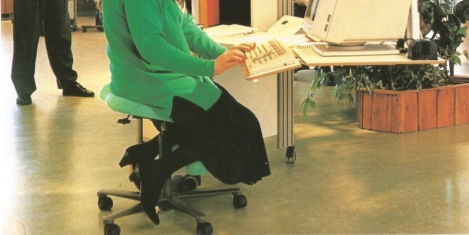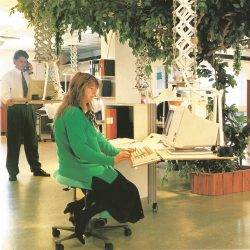July 5, 2018
White paper: How the workplace is pioneering the use of data in organisations
 In 2017, a content creator called Oobah Butler decided that he wanted to do something with the experience he’d gained writing fake positive restaurant reviews on TripAdvisor. What if, he wondered, he set up an entirely fictitious restaurant based in the shed in his garden and then started to manipulate TripAdvisor ratings? What happened surpassed his wildest expectations. In just six months, The Shed at Dulwich became the top-rated restaurant in London, even though nobody had ever actually eaten there, based solely on fake reviews, fake pictures and the word of mouth created by a complete inability for anybody to book a table.
In 2017, a content creator called Oobah Butler decided that he wanted to do something with the experience he’d gained writing fake positive restaurant reviews on TripAdvisor. What if, he wondered, he set up an entirely fictitious restaurant based in the shed in his garden and then started to manipulate TripAdvisor ratings? What happened surpassed his wildest expectations. In just six months, The Shed at Dulwich became the top-rated restaurant in London, even though nobody had ever actually eaten there, based solely on fake reviews, fake pictures and the word of mouth created by a complete inability for anybody to book a table.







 The majority of employees are disappointed with their company’s lack of investment in technology, and despite the fact three quarters (76 percent) want to request flexible working – almost half still don’t have the option of working more flexibly, a new report from a technology company claims. According to the survey by technology company Ingram Micro Cloud UK, in collaboration with technology company Microsoft, despite the fact that Millennials and Centennials are often thought to be the driving force behind changing workplace practices – and are often derided in popular discourse for having unreasonable and unrealistic expectations – the calls for change are coming from all segments of the workforce. However, 85 percent of Millennials admit to procuring their own workplace technologies such as instant messaging, Skype, file hosting and sharing tools (all available from Ingram Micro Cloud) that aren’t supported or provided by their employer, which raises major security issues, acco.
The majority of employees are disappointed with their company’s lack of investment in technology, and despite the fact three quarters (76 percent) want to request flexible working – almost half still don’t have the option of working more flexibly, a new report from a technology company claims. According to the survey by technology company Ingram Micro Cloud UK, in collaboration with technology company Microsoft, despite the fact that Millennials and Centennials are often thought to be the driving force behind changing workplace practices – and are often derided in popular discourse for having unreasonable and unrealistic expectations – the calls for change are coming from all segments of the workforce. However, 85 percent of Millennials admit to procuring their own workplace technologies such as instant messaging, Skype, file hosting and sharing tools (all available from Ingram Micro Cloud) that aren’t supported or provided by their employer, which raises major security issues, acco.



























July 6, 2018
A storm brewing around the workplace and facilities management
by Cathy Hayward • Comment, Facilities management, News, Workplace design